China This Week: Xi and Ruto deepen China–Kenya ties; China ramps up industrial robot use; Apple plans to shift US iPhone production to India.
This week's Beyond the Great Wall provides an overview of key developments within China, along with insights into its foreign affairs.
China Quote 🗩
"By enhancing the certainty of high-quality development, we can
effectively respond to the uncertainties brought by drastic changes in
the external environment"
Chinese Politburo
Economic Activity🏦
Chinese Investors Dump US$2b Hong Kong Stocks in Rare Move
Winnie Hsu writes in The Edge Malaysia that Chinese investors sold HK$18.1 billion (US$2.3 billion) worth of Hong Kong stocks on Wednesday, marking the largest single-day outflow since February 2021. The selloff comes despite a market rally driven by easing trade tensions, and likely reflects profit-taking amid strong April inflows and shifting currency expectations.
China Has an Army of Robots on Its Side in the Tariff War
Keith Bradsher writes in The New York Times that China’s massive investment in factory automation and AI is giving it a competitive edge in global trade, especially amid US and EU tariff pressures. With more industrial robots than nearly any country, China is cutting manufacturing costs, enhancing product quality, and preparing for demographic decline through its state-driven automation strategy.
Inside China🐉
Breaking ranks: China’s new journal publishing benchmarks to boost scientific soft power
Zhang Tong and Dannie Peng write in the South China Morning Post that China has introduced a new ranking system for over 22,000 scientific journals, aiming to elevate domestic publications and assert its voice in global academic discourse. The move has stirred debate by downgrading some top international journals while boosting lesser-cited Chinese ones, reflecting Beijing's push for research autonomy and scientific soft power.
China’s cosmetic surgery boom exposes dark underbelly of beauty obsession
BBC reports that China’s $30 billion cosmetic surgery industry is facing mounting scrutiny over botched procedures, unlicensed clinics, and exploitative recruitment scams. Influencer Abby Wu, who’s had over 100 surgeries, embodies a culture driven by toxic beauty standards and algorithmic perfection. Victims speak of lifelong damage and debt, as authorities struggle to regulate a sector increasingly linked to social media-fuelled insecurities and employment discrimination.
Car plows into crowd outside school in eastern China, injuring multiple people
Alex Stambaugh writes in CNN that several people, including children, were injured after a car rammed into a crowd near a kindergarten and elementary school in Jinhua, Zhejiang province. While the cause remains unclear, the incident adds to a disturbing trend of random public attacks in China amid rising social tensions. Authorities have not issued an official statement.
Humanoid workers and surveillance buggies: ‘embodied AI’ is reshaping daily life in China
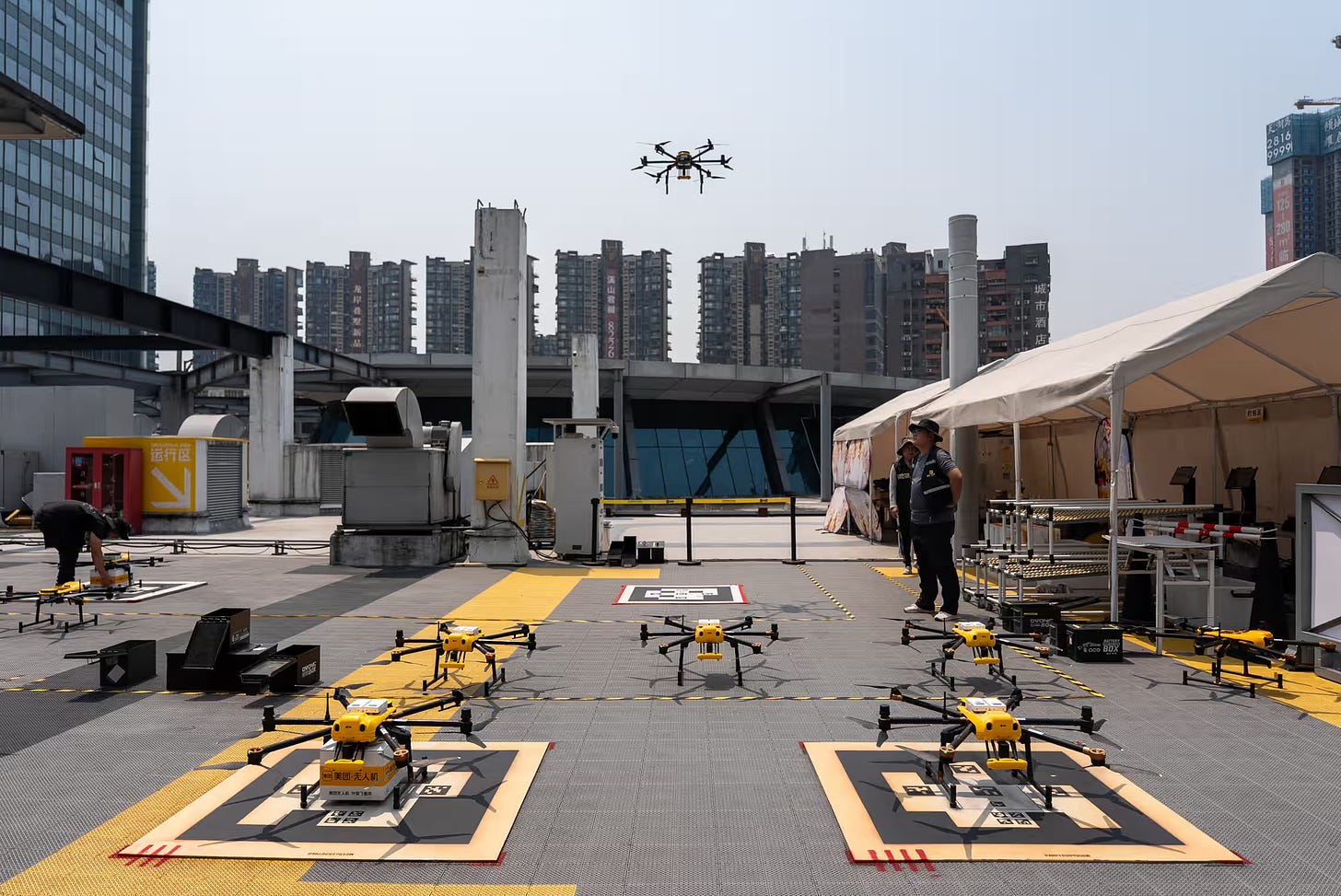
Amy Hawkins writes in The Guardian that China is rapidly integrating “embodied AI” technologies—drones, humanoid robots, and surveillance buggies—into daily life, with support from the government amid economic and demographic challenges. Shenzhen leads the charge with delivery drones and humanoid robots, as firms like DeepSeek and Unitree showcase China’s AI advances. These innovations are seen as strategic tools for growth, automation, and national pride in an increasingly tense global tech race.
China and the World🌏
Xi contrasts China’s clean energy promises with Trump turmoil
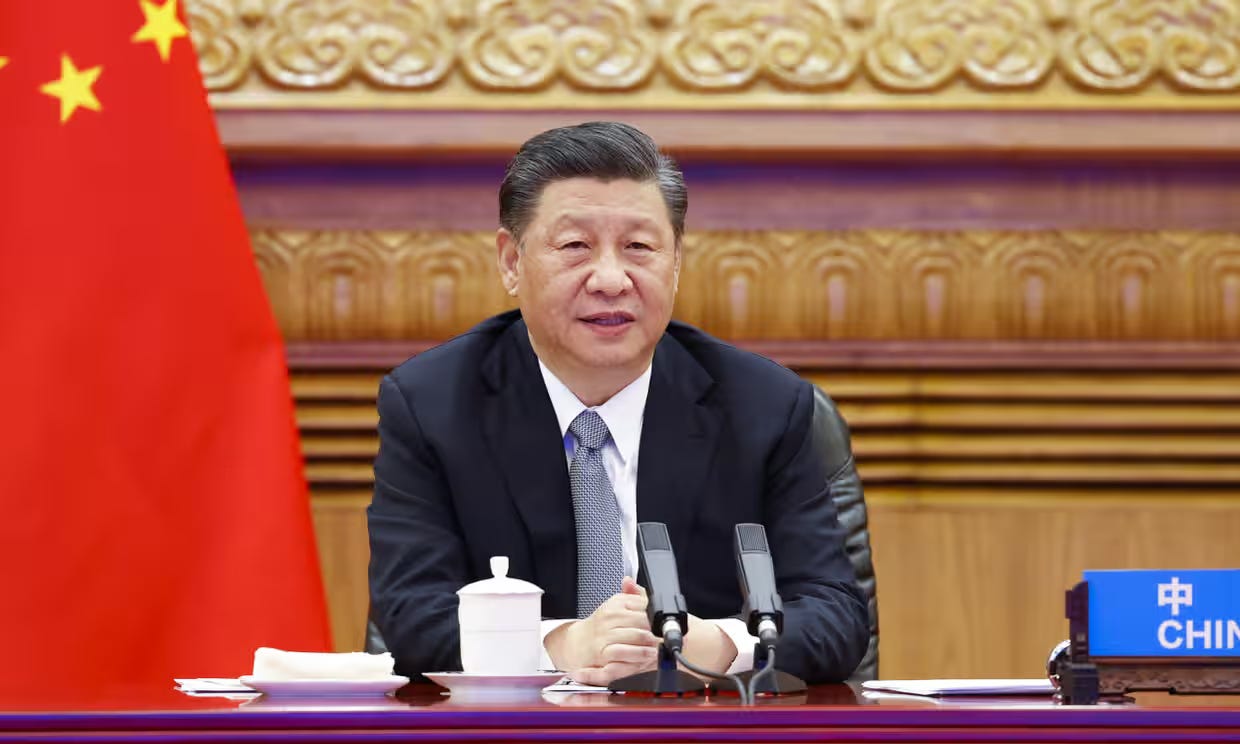
Fiona Harvey writes in The Guardian that Xi Jinping reaffirmed China’s commitment to climate action during a closed-door meeting with global leaders, implicitly criticising Donald Trump’s protectionist tariff policies. UN chief António Guterres declared that “no group or government” can halt the clean energy transition, as the summit underscored growing international resolve despite political turbulence.
Xi and Ruto agree to deepen China-Kenya partnership under ‘shared future’ vision
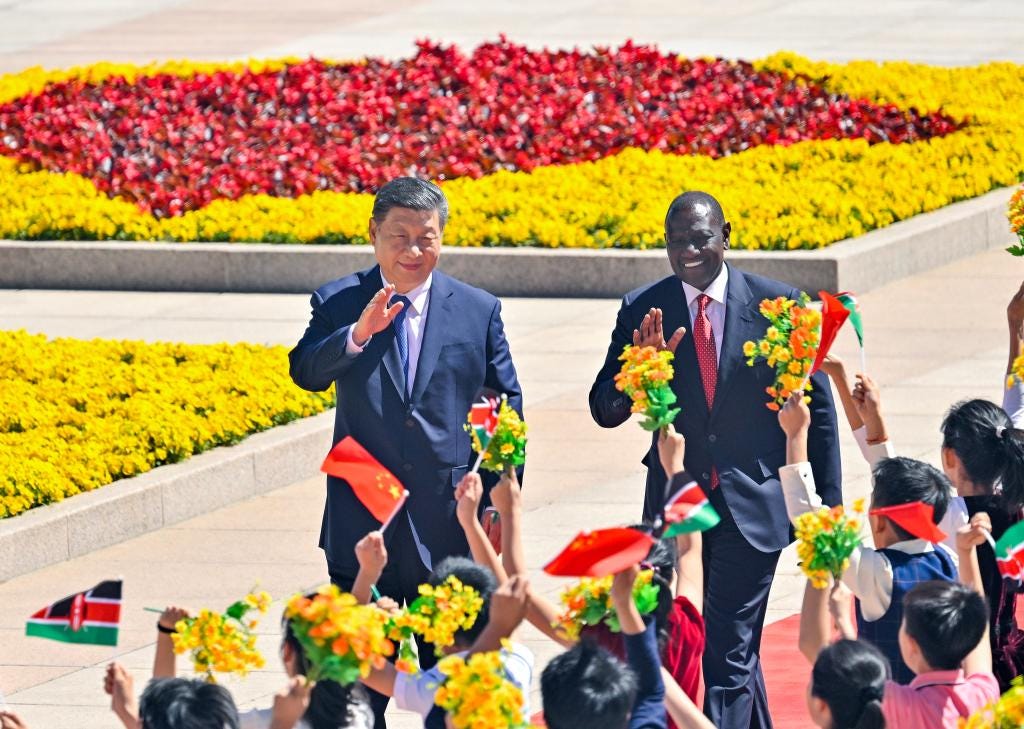
Xinhua reports that Chinese President Xi Jinping and Kenyan President William Ruto have elevated bilateral ties to a “community with a shared future for the new era.” In Beijing, both leaders reaffirmed support for sovereignty, Belt and Road cooperation, and Global South solidarity. Twenty agreements were signed spanning trade, technology, media, and cultural exchanges.
China and Azerbaijan eye broad prospects for cooperation
CGTN reports that China and Azerbaijan signed 13 new cooperation projects during an industry and investment conference in Beijing, ahead of President Ilham Aliyev’s state visit. The agreements span digital economy, green energy, and infrastructure, with trade rising over 40% in 2023. Both sides reaffirmed their strategic partnership, aligning with the Belt and Road Initiative and shared green development goals.
Chinese vice premier meets Iranian FM amid deepening strategic ties
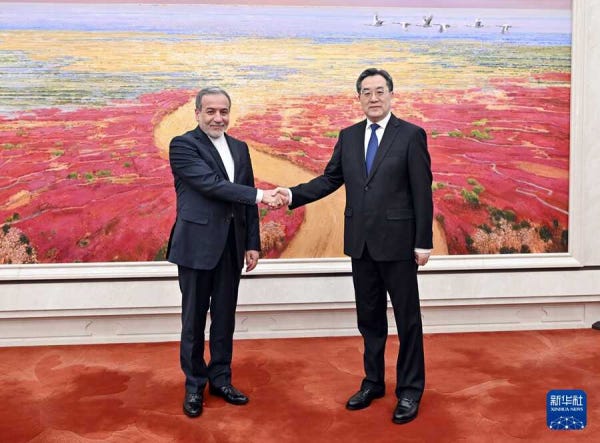
Shen Sheng writes in the Global Times that Iranian Foreign Minister Seyed Abbas Araghchi met Chinese leaders in Beijing to reaffirm the China-Iran comprehensive strategic partnership. Talks focused on expanding cooperation, resisting unilateralism, and coordinating on the Iran nuclear issue. Both sides pledged high-level dialogue, multilateral engagement, and mutual support amid ongoing US-Iran negotiations, highlighting China’s growing diplomatic role in Middle East affairs.
Chinese Coastguard Claims ‘Sovereign Jurisdiction’ of Sandy Cay in South China Sea
Liu Zhen writes in the South China Morning Post that the China Coast Guard has asserted control over Sandy Cay, a disputed reef in the Spratly Islands also claimed by the Philippines. Chinese officers reportedly raised a flag and conducted inspections, prompting renewed tensions amid ongoing US-Philippines military drills and recent naval confrontations in the region.
Philippines Loosens Decades-Old Ban on Official Visits to Taiwan
Alan Lu reports in Radio Free Asia that the Philippines has eased long-standing restrictions on official visits to Taiwan, allowing most government officials to travel there for economic purposes without using official titles. The move signals a shift in Manila’s China policy amid rising South China Sea tensions and growing security cooperation with Taiwan and the US.
Apple Aims to Source All US iPhones from India in Pivot Away from China
Michael Acton, Stephen Morris, John Reed, and Kathrin Hille report in the Financial Times that Apple plans to shift assembly of all iPhones sold in the US to India by 2026, beginning as early as next year. The move accelerates Apple’s supply chain diversification amid Donald Trump’s renewed tariffs on China, which have heavily impacted Apple’s market value and production strategy.
Boeing CEO says China has stopped taking its aircraft amid trade war
Leslie Josephs writes in CNBC that Boeing CEO Kelly Ortberg confirmed China has halted aircraft deliveries due to escalating trade tensions and 145% US tariffs on Chinese goods. Several 737 Max jets meant for Chinese airlines have been redirected, as Boeing eyes other buyers. Ortberg warned the company won’t let the standoff derail its recovery, as President Trump hints at lowering tariff rates.
US Treasury secretary says trade war with China is not ‘sustainable’
Josh Boak and Fatima Hussein write in AP News that Treasury Secretary Scott Bessent has called the ongoing trade war with China “unsustainable,” signalling a likely de-escalation despite the lack of formal talks. With Trump’s 145% tariffs prompting economic strain and market uncertainty, Bessent acknowledged both sides see the status quo as untenable. Trump later hinted tariff rates may be reduced, though no immediate policy shift was confirmed.
From Banning Tech to Ending Sister-City Ties, US States Have at Least 240 Anti-China Proposals
John Hanna reports in AP News that US state legislatures have introduced over 240 anti-China proposals in 2025, ranging from bans on Chinese tech and drones to restrictions on sister-city ties and farmland purchases. Fuelled by Trump-era rhetoric and cybersecurity concerns, the bipartisan trend reflects heightened wariness of China’s influence in local governance and critical infrastructure.
Tech in China🖥️
China launches Shenzhou-20 crewed spaceship
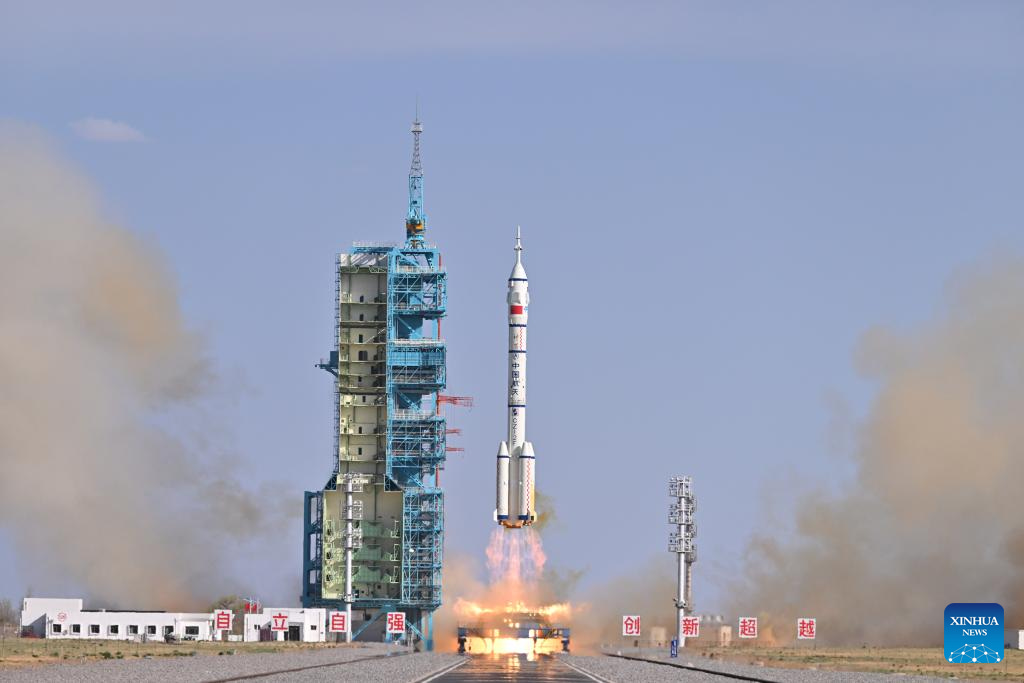
Xinhua reports that China successfully launched the Shenzhou-20 crewed spaceship on Thursday, sending three astronauts to its space station for a six-month mission. The spacecraft, carried by a Long March-2F rocket, lifted off from the Jiuquan Satellite Launch Center in northwest China, marking another milestone in the country’s expanding space programme.
China unveils drone-mounted quantum device for submarine detection in South China Sea
Stephen Chen writes in the South China Morning Post that Chinese scientists have developed a quantum magnetometer drone capable of detecting submarines with picotesla precision, eliminating ‘blind zones’ in low-latitude regions like the South China Sea. The breakthrough, seen as a low-cost rival to NATO’s MAD-XR system, enhances China’s underwater warfare capabilities amid growing Sino-US maritime tensions.
Image of the Week📸

- - -

